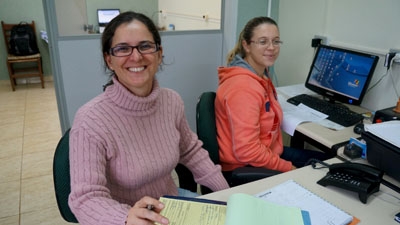Milene Veroneze, from São Paulo, was only 13 when his father joined a cooperative of milk producers. Today, at 37, she is in charge of acquisitions and payments, and keeps an eye out to make sure her colleagues vaccinate the cattle on schedule. "I learned everything the hard way," says the administrative assistant. She will soon be moving to another city, but not before training Jessica Calça, 20, who watches her instructor's every step.
The cooperative is part of the 30,000 solidarity-based economy companies in existence in Brazil, according to the Ministry of Labor. They employ about 2.3 million people and boast certain fundamental characteristics.
First, the work is performed in associations or cooperatives. Second, there is collective ownership over the means of production, such as the computer Milene uses for work and the machine used for producing yogurt. Self-management is another characteristic: all decisions are made by the members.
Also according to the Ministry of Labor, many of these companies adopt sustainable production techniques. Lastly, members share their earnings, with equal payment and opportunities for men and women.
"As a result of all this, solidarity-based economy emancipates workers and provides opportunities to those who live in rural settings or who are in poverty," says Roberto Marinho, joint-secretary of the National Solidarity-based economy Secretariat, linked to the Ministry.
Next month, the institution will be disclosing new figures about the topic and the profile of those working in the sector.
"In Brazil, solidarity-based economy is part of the national productive inclusion strategy; it is also becoming increasingly important in countries like El Salvador and Mexico. This shows an effort in the region to unite social assistance and job creation policies," says Concepción Steta, social protection specialist at the World Bank.

